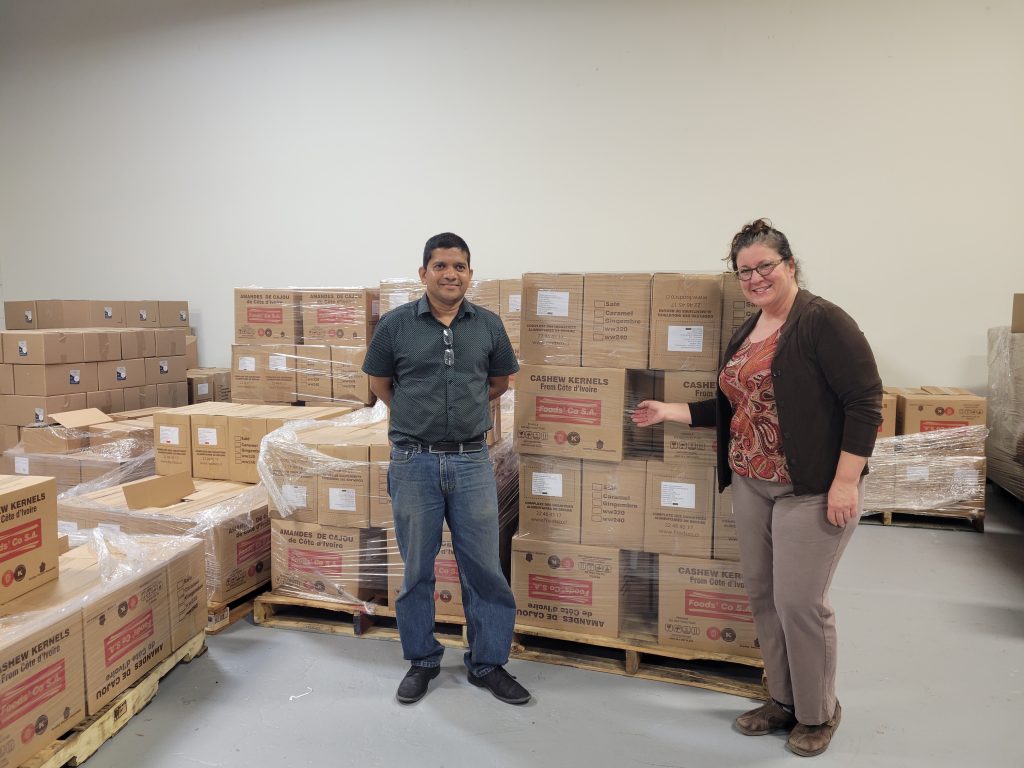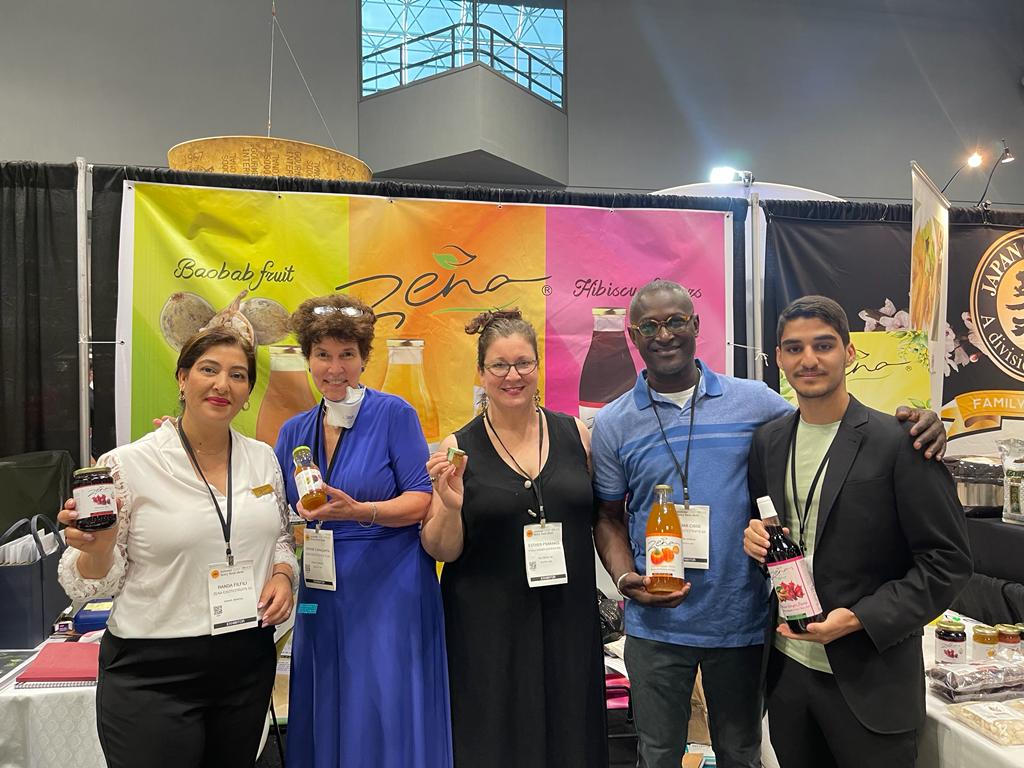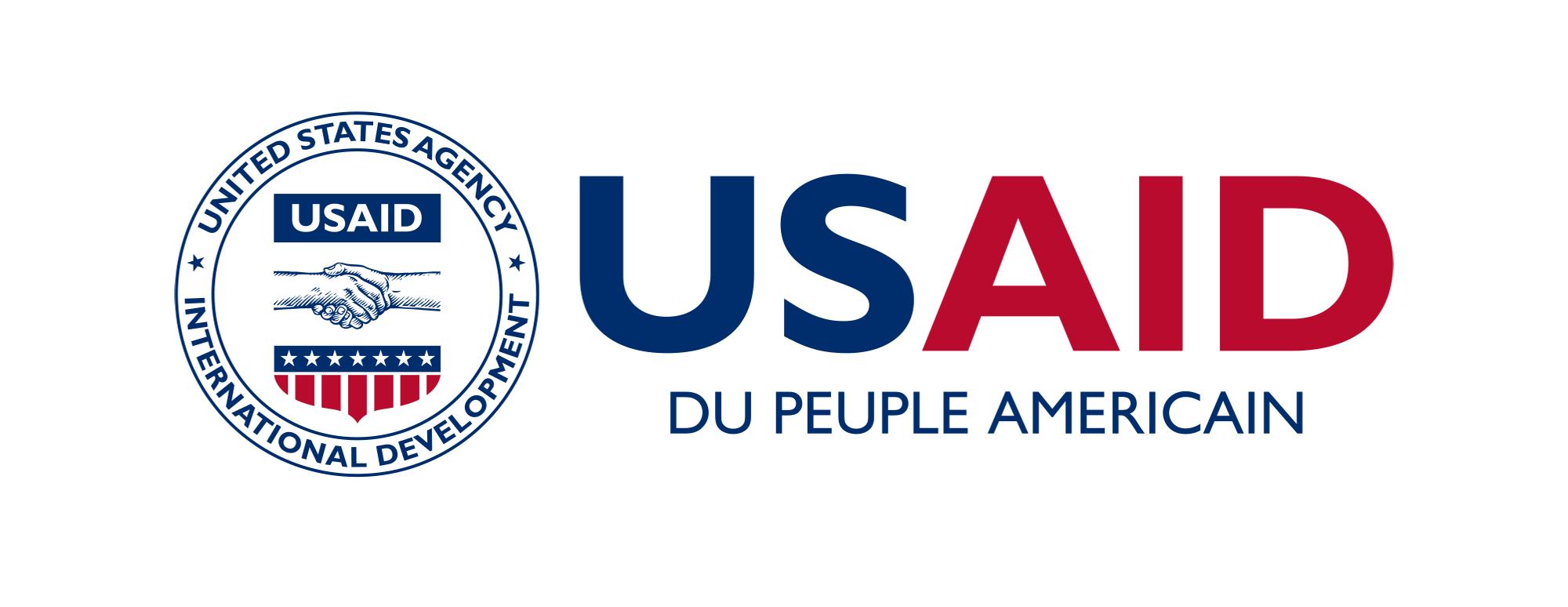Trade Hub’s Technical Assistance Reaches Beyond Co-Investment Partners to Support Duty-free Export through AGOA Efforts
By Tia Swain, Communication Specialist
Business success requires navigating unfamiliar territory while facing constant challenges. In West Africa, the aim of establishing, maintaining, and scaling a business to the level to which international export is not only possible, but sustainable and profitable, brings an entirely new level of difficulty. Beyond economic, political, geographical, and cultural realities that make it a mammoth effort, the inherent nature of sustaining an export business presents a level of risk that seems impractical to take on and impossible to overcome for many.
For decades, various programs, initiatives, policies, and systems have been developed and implemented to mitigate the risks and circumvent the challenges that hinder the successful export of key raw materials and select finished goods to international markets. One significant example of legislation is the African Growth and Opportunity Act (AGOA), a United States Trade Act, enacted on May 18, 2000, and renewed through at least 2025, geared to significantly enhance market access to the United States for qualifying Sub-Saharan African countries. Qualifications for AGOA preferences are detailed at the country level, giving duty-free access to the U.S. market to a list of approximately 6,500 “AGOA products,” from which individual businesses must meet further requirements to benefit. (Find more details about AGOA Cliquez.)
With an emphasis on amplifying the AGOA trade preference program to increase exports to the United States specifically, a key objective of the USAID West Africa Trade & Investment Hub is to boost international and regional exports to the United States under AGOA and to other countries as well. To this end, the Trade Hub provides targeted technical assistance (TA) to co-investment partners and other export-ready companies in the region requesting support. This technical assistance, provided continually in the last year through a dedicated Market Linkages Expert and two West Africa-based AGOA consultants supported by the Trade Hub’s Public-Private-Partnership team, offers the needed guidance in navigating the unfamiliar and challenging terrain of business and exports across the region. The Trade Hub will bolster this support with the hiring of a full-time AGOA/Export Promotion Specialist before the end of the current fiscal year.
From providing direct, tailored advice to providing training to various audiences (from those who work in factories to those who work in government), the Trade Hub team focuses on boosting the successful application of the AGOA benefits and enabling export-ready businesses to profit from them.
Providing Technical Assistance to Export-Ready Enterprises

These ongoing efforts range from the direct assistance of an AGOA expert who attends to requests submitted through an AGOA-focused resource page within the Trade Hub website; to providing access to informative digital resources and webinars (including this one-minute introduction to AGOA); to the Trade Hub team providing expert, targeted advice to companies seeking to understand better the opportunities provided for West African exporters under AGOA.
The varied and multifaceted guidance often starts with an overview of AGOA and the practical steps to export to the United States through leveraging AGOA, including understanding the proper certifications and procedures. Next, the Trade Hub team reviews how a company lines up with the eligibility requirements, then guides those companies that are ready through the process of completing the necessary forms and procedures to seek and gain approval. The Trade Hub is providing TA to over 75 private sector firms to complete regional and international export and supporting these companies to leverage the AGOA mechanism to export commodities to the United States.
Facilitating Outreach Programs
Just in this last quarter (April through June 2022), the Trade Hub team was integral in countless business interactions that have been a part of the continued development of businesses and organizations that are either directly exporting or heavily involved in the business of exports. A few key outreach topics, resources, and events are highlighted below, demonstrating the various functions used to better equip and assist firms in West Africa in their goals to thrive in exports.
The Trade Hub team provided a range of TA to businesses to utilize AGOA to export, with the most focused and highest-level assistance provided through the Senior Market Linkages Expert, Esther Psarakis. Psarakis provided targeted, export-related TA to 30 beneficiaries, including Trade Hub grantees ReelFruit, La Petit Damba, Biosene, and Zena Exotic Fruits and other export-ready or near export-ready West African businesses.

Through her work with these companies, Psarakis opened opportunities for West African suppliers in the highly competitive U.S. market, cultivating 34 buyer/seller linkages between the United States and West African businesses, including linkages with U.S. companies Bluestar Direct, Nightingale Bakery, NAZ HS FOOD, and Bedemco, among others.
While the impact of AGOA-related support provided by the Trade Hub team usually results in the increased value of direct exports (including a combined $233,646 of cashews exported to the United States through two companies in Côte d’Ivoire, SITA, and Foods CO between April and June of this year), the reach of the TA also has various other beneficial outcomes.
In addition to her usual work facilitating business linkages, Psarakis participated in preparing an AGOA fact-finding report to evaluate the performance and potential extension of AGOA, providing information to the U.S. International Trade Commission Panel. Psarakis reviewed and provided an initial analysis of Nigeria’s National AGOA response strategy and made introductions for several U.S. importers with the United Bank of Africa to help facilitate transactions between Trade Hub companies and U.S. importers.
Fostering Collaborations
Representing the Trade Hub, Psarakis and Robin Wheeler, Chief of Party for the Trade Hub, participate in various events, sharing insights and championing the various ways to support businesses in the region in trade and exports. Some of those events include: Psarakis participating in a panel on the topic “Driving Non-oil Exports through Strategic Partnerships” for the Nigerian Export Promotion Council in April; presenting on U.S. Food & Drug Administration (FDA) Registration at the Nigerian American Chamber of Commerce’s African Food and Products Conference and Exhibition in May; and, also impacting the Trade Hub’s objective of increasing opportunities for women and youth in West Africa, presenting at the Africa Women Innovation and Entrepreneurship Forum in Nigeria, and at the Sephis Foundation in Côte d’Ivoire on the topic of “Emulating Small Business Development Center/Women Business Centers” in June.
On July 19-July 22, 2022, the Trade Hub’s Chief of Party, Robin Wheeler, participated as a speaker at the 2022 U.S.-Africa Business Summit (hosted by the Corporate Council on Africa) in Marrakech, Morocco. The Summit’s theme “Building Forward Together” focused on fostering stronger U.S.-Africa trade, investment, and commercial ties, and encouraged renewed commitment from both public and private sector stakeholders.
Trade Hub Co-Investment Partners Benefiting from Technical Assistance to Export
Prosper Africa, one of the Trade Hub’s major funding partners, is the U.S. Government’s initiative to substantially increase two-way trade and investment between the United States and Africa. The initiative brings together services and resources from across the U.S. Government to help businesses and investors get market insights, access deal support, and explore financing opportunities.
In line with the Prosper Africa initiative, the Trade Hub aims to facilitate more than $300 million in exports from the region (which would indicate a 25 percent value of regional and international exports) particularly to the United States, thanks to AGOA. The Trade Hub has awarded co-investment grants to 86 companies, 47 of which are already exporting or have export potential.
The Trade Hub AGOA team have been working intensively with some of these companies to support them to meet their export potential, including companies like Koster Keunen, Alaffia, and Nature’s Bounty (ReelFruit).
Koster Keunen West Africa
Togo-based Koster Keunen West Africa (KKWA) was awarded a $1,785,470 co-investment grant made possible by Prosper Africa to establish a sustainable regional supply chain for the export of beeswax, honey, shea, and cashews to the United States and other international markets. During the last quarter (April–June 2022), Koster Keunen invested $697,517 to purchase 116 metric tons (MT) of beeswax, 312MT of shea kernels, and 9MT of honey from 6,883 producers across Burkina Faso, Togo, Mali, Nigeria, Ghana, and Benin. This generated $749,091 in exports, of which $647,699 was to the United States under AGOA. Beyond Koster Keunen’s direct export impact, the Trade Hub-supported project offers technical guidance to key local partners who gain assistance in everything from receiving beekeeping gear to building and setting up honey houses.
Agbanga Karite (Alaffia)
Another co-investment partner supported by Prosper Africa, Togo-based Agbanga Karite (Alaffia), was awarded a $299,000 co-investment grant in March 2021 to secure the supply of shea kernels and other raw materials needed for the company’s production of shea butter products sold in the U.S. market during the COVID-19 pandemic. After a difficult period of lower than predicted sales of Alaffia U.S. personal care products in the United States, with the support and guidance of the Trade Hub team, Alaffia Togo was able to receive more customer orders and ramp up its production activities to produce and export 107MT of shea butter products valued at $486,583 through June 2022.
Alaffia finalized and obtained the renewal of its Fair for Life (FFL) certificate, enabling its fair-trade products to be commercialized worldwide with an FFL label backed by Ecocert, the world’s leading specialist in the certification of sustainable practices. This certification is valid until April 30, 2024, subject to annual compliance audits. Through ongoing Trade Hub technical visits, the firm can be supported in maintaining and even exceeding the certification standards and can continue production to meet the project’s $2 million total export target before the project’s end date, August 30th.
Nature’s Bounty
Also known as ReelFruit, Nature’s Bounty Health Products Ltd. was awarded a Trade Hub grant of $499,768 in August 2021 to expand and improve its overall processing capacity for exports of dried fruits to the United States. The Trade Hub team has assisted the firm with gaining crucial certifications, including Hazard Analysis Critical Control Point (HACCP), a food safety management system, and the International Organization for Standardization (ISO) 9000. Beyond these international-recognized certifications, TA focused on improving branding and packaging has further supported the partner’s success.
Working tirelessly to ensure ReelFruit is market-ready, Psarakis is continuously providing feedback and distributing their samples to several promising leads. ReelFruit will participate in the American Food Trade & Beverage Show for the first time this September in Miami.
In addition to the direct AGOA-focused assistance and successes, the Trade Hub has been working with some grantees on cross-border trade, including La Petite Damba (Guinea), Inpharma Laboratories (Cabo Verde), and La Laiterie du Berger (Senegal). In the case of La Petite Damba, the Trade Hub has facilitated the export of fonio to Côte d’Ivoire through the expansion of the grantees’ production and storage capacity, allowing an export increase from 60MT in the last business year to 250MT per year. With Inpharma, an increase in manufacturing capacity for their disinfectants and antiseptics enabled the firm to export a total value of $24,828 to Guinea Bissau within the last three quarters. Through the support of the Trade Hub, La Laiterie Du Berger has developed its network of milk suppliers, enabling the company to collect surplus milk to allow exports (with an export value of $155,279) for the first time to The Gambia and Mali in July.
In the coming months, the Trade Hub team will intensify its efforts in providing support to companies within the region to expand both AGOA and intra-African exports. With this continual support to more companies, the Trade Hub team is progressing steadily toward the target of facilitating $300 million in exports by 2024 through supporting businesses and private sector actors to be a part of West Africa’s economic transformation.

